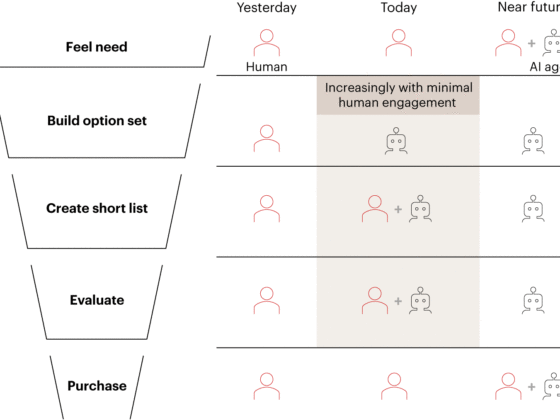
- Since first conducting research on consumer attitudes about traveling more sustainably in 2016, Booking.com has since surveyed nearly 230,000 travelers in 35 markets. The latest data from 2025 shows a shift in traveler perceptions of what sustainability encompasses. For the first time, more than half of travelers (53%) are now conscious of tourism’s impact on local communities, as well as the environment.
- While 57% of travelers feel that tourism has a positive impact overall where they live, they also highlight challenges including traffic, littering, overcrowding and a rising cost of living.
- Only 16% of travelers think visitor numbers should be capped in their home destination, instead emphasizing a need for investment in communities through infrastructure upgrades.
- Travelers are increasingly committed to supporting the economies of the destinations they visit with 73% wanting the money they spend to go back to the local community, and two thirds (69%) wanting to leave places better than when they arrived.
AMSTERDAM – Today Booking.com released the 10th edition of its annual research exploring consumer attitudes and intentions with regards to the social and ecological impact of travel. With insights from 32,000 travelers in 34 countries, and amid growing discussion of the impact of tourism on destinations, the research concludes that, for the first time, more than half of travelers (53%) are now conscious of travel’s impact on communities as well as the environment, and that two thirds (69%) now want to leave places better than when they arrived.
Booking.com’s new research takes a community-centric lens. Asking respondents not just how they travel but how they also experience inbound visitors where they live, this approach sheds light on the benefits and challenges of tourism from their perspective as both travelers and locals. The report reveals that while more than half (57%) feel that tourism has a positive impact overall on the place where they live, adjustments are needed so that destinations can grow at a healthy pace and continue to be enjoyed by all.
Understanding the needs of local residents
With just under half (48%) of travelers believing there is the right amount of tourism where they live, as residents they highlight some of the common challenges they face related to tourism including: traffic congestion (38%), littering (35%), overcrowding (30%) and rising cost of living (29%).
Despite these concerns, only a small number (16%) of travelers believe that capping the number of tourists in their home destination is the answer. Instead they emphasize the need for investment in their communities with improved transportation (38%), waste management (37%), and environmental conservation (32%) identified as the top types of support they’d like to see.
When it comes to visitor behavior where they live, more than half of travelers share a positive sentiment, saying that the tourists they see at home often or always respect local customs and traditions (53%), as well as support local businesses (54%). While this still highlights room for improvement, it does correlate with their own intentions for travel, with 73% wanting the money they spend to go back to the local community, and 77% seeking authentic experiences representative of local culture.
More mindful habits becoming mainstream
Globally, in 2025, traveling more sustainably remains important for most travelers (84%). Looking back over the decade, the data shows how it has become a larger priority for many when planning trips. Back in 2016 less than half (42%) of global travelers believed they traveled more sustainably. By 2025, 93% of global travelers say they want to make more sustainable travel choices and to some extent have done so. In addition to increased intent, over the ten years that Booking.com has been gathering insights, there have been shifts in awareness levels, preferences and priorities when it comes to what travelers perceive as having a more positive impact on local destinations, communities and ecosystems.
During this time, many habits related to waste reduction and energy consumption have become increasingly mainstream and remain the top choices when travelers think of influencing the impact of their trips. In 2020, 43% of travelers said they turned off the air conditioning/heater in their accommodation when they weren’t there, and by 2023 this was up to 67%. This year’s research shows that behaviors relating to community and economic impact now sit alongside these environmental choices, with travelers consciously considering ways they can minimize the impact of the destinations they visit, whether that’s seeking advice on travel at other times of the year (39%) or visiting alternative destinations to avoid overcrowding (36%).
To ensure that destinations can continue to be enjoyed by both locals and visitors alike, tourism, infrastructure and innovation need to keep pace with travelers’ good intent. As a leader in the travel industry, we want to make it easier for both travelers and partners to feel confident that the choices they make are helping contribute positively to the destinations they visit. That includes surfacing hotels and accommodations with reputable third-party sustainability certifications or providing training and guidance to our accommodation partners, as well as how to best engage with local communities or reduce their usage of natural resources. As we look to the future, we are also optimistic about the potential for AI and other technology to play a role. We ultimately want to make it easier for travelers to connect with a more diverse range of local communities and help spread the positive benefits of tourism more broadly. Danielle D’Silva, Director of Sustainability at Booking.com
Research commissioned by Booking.com and independently conducted among a sample of 32,000 respondents across 34 countries and territories (1,000 from USA, 1,000 from Canada, 1,000 from Mexico, 1,000 from Colombia, 1,000 from Brazil, 1,000 from Argentina, 1,000 from Australia, 500 from New Zealand, 1,000 from Spain, 1,000 from Italy, 1,000 from France, 500 from Switzerland, 1,000 from the UK, 1,000 from Ireland, 1,000 from Germany, 1,000 from the Netherlands, 1,000 from Belgium, 1,000 from Denmark, 1,000 from Sweden, 1,000 from Croatia, 500 from UAE, 1,000 from India, 1,000 from China, 1,000 from Hong Kong, 1,000 from Thailand, 1,000 from Singapore, 1,000 from Taiwan, 1,000 from Vietnam, 1,000 from Indonesia, 1,000 from Philippines, 1,000 from South Korea, 1,000 from Japan, 1,000 from South Africa and 500 from Kenya ). To participate, respondents had to be 18+ years, have traveled at least once in the past 12 months, must be planning to travel in 2025, and be either the primary decision maker or involved in the decision making of their travel. The survey was taken online and took place in January 2025.
About Booking.com
Part of Booking Holdings Inc. (NASDAQ: BKNG), Booking.com’s mission is to make it easier for everyone to experience the world. By investing in the technology that helps take the friction out of travel, Booking.com’s marketplace seamlessly connects millions of travelers with memorable experiences every day. For more information, follow @bookingcom on social media or visit globalnews.booking.com. For more information, follow @bookingcom on social media or visit globalnews.booking.com.










